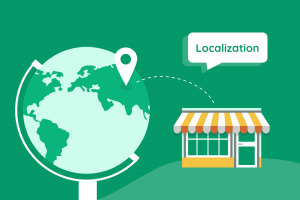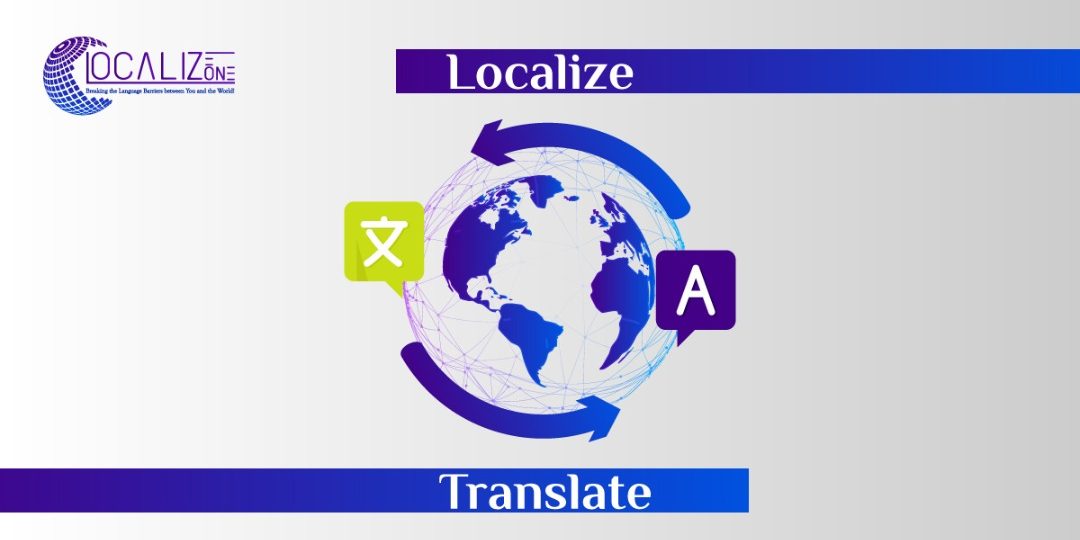The world is witnessing a new era of global expansion and technological development with so much innovation. Through all of this, only one thing stands out: the company’s ability to overcome the obstacles and understand the demands of the evolving new world to be able to find a smart way to adapt to modern needs.
An effective way to adapt is through localization. It’s thought that localization and translation are the same, but by the end of this article, you will be able to tell the difference.

What is localization?
Localization is the process of adapting a piece of content to meet the needs of the targeted market, language, and culture. The way to make this content relevant to the targeted culture and to make it user-friendly. For example, changing the word “Realise” in British English to be “Realize” in American English is a type of localization.
Localization serves to retract linguistic and cultural barriers that come across the way of your service and smoothly adapt it to success. In a matter of fact, everything can be localized like:
- Website localization
- Brand localization
- Android app localization
- Marketing and content localization
- Language localization
- SEO localization
- Subtitling localization
- Software localization.
The list of localization services never ends, but after all, it all leads to the same result a significant success for your brand.

What is translation?
The translation is the process of changing content from one language to another in a way that conveys the same meaning, emotions, and message considering the difference in cultures for translated content.
Translation services vary, so do the prices. Some of the most common fields of translation are:
- Legal translation
- Literary translation
- Commercial translation
- Technical translation
- Medical translation
- Administrative translation
- Website translation
Translation fulfills the same purpose of localization to make communication easier and help products adapt to the marketplace’s requirements.

The question now is: what’s the difference then between localization and translation?
– Translation has been there for so long, localization has developed along with the existence of digital content since 1980 due to the availability of software systems.
– Translation changes texts, while localization changes the whole product covering linguistic and cultural adaption.
To clarify more the difference between both let’s have an example:
“I have bought a new bag for 100$.”
The translation of this sentence into the Turkish language, for example, is:
“100$’a yeni bir çanta satın aldım.”
This sentence is meaningful, but we have only translated it and changed the words from English into Turkish, and we didn’t consider the difference in the currency for example.
If we localize that sentence to adapt to Turkish culture, we have to change the currency to be TL.
The sentence will be:
“861.91 TL’a yeni bir çanta satın aldım.”
Here we have delivered the meaning as well, according to the cultural background of the Turkish society.
So to summarize everything, translation is part of localization, but it’s not enough for content to become authentic and culturally accepted.
You too, start localizing your work and contact LocaliZone to enjoy a remarkable competitive service.








